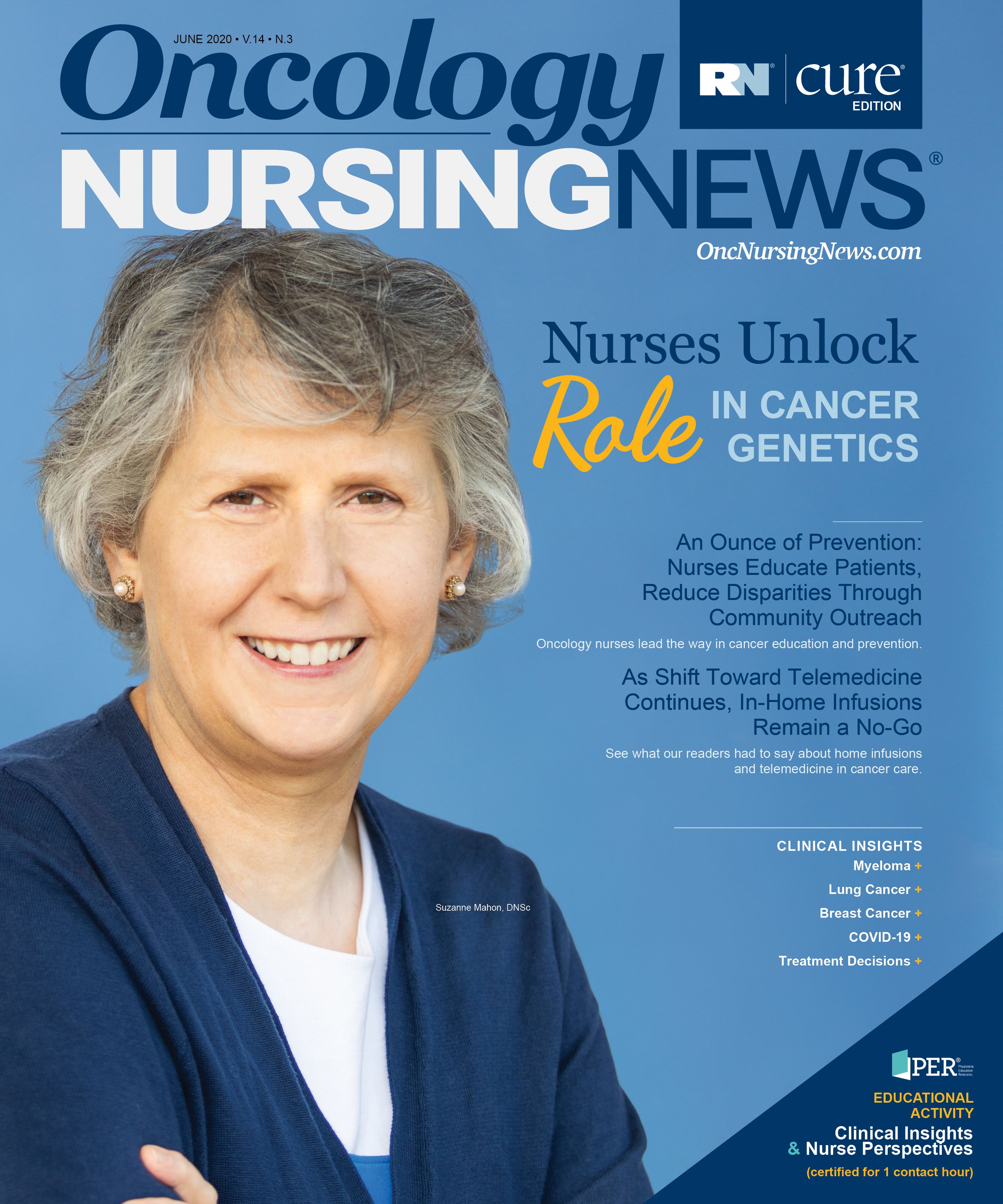An Ounce of Prevention: Nurses Educate Patients, Reduce Disparities Through Community Outreach
Oncology nurses play a crucial role in educating the public about cancer risk and prevention.
Delaware has the highest prevalence of triple-negative breast cancer (TNBC), an aggressive form of the disease that disproportionately affects women in the African American and Hispanic communities. Yet despite its high prevalence, African American and Hispanic women make up a small portion of women seeking genetic testing for the disease.1
Nora Katurakes, MSN, RN, OCN, manager of Community Health Outreach and Education at Christiana Care’s Helen F. Graham Cancer Center and Research Institute’s Community Health Outreach and Education Program in Newark, Delaware, hopes to change that through a community outreach program called, “The Story of BRENDA.”
The BRENDA acronym stands for Breastfeed, Reduce consumption of alcoholic and sugary beverages, Exercise 2 ½ hours each week, Nutritious foods, Do not smoke, and Achieve a healthy body weight.
Katurakes is one of many oncology nurses across the country who works as part of a team that goes beyond caring for patients with cancer in a hospital or outpatient setting.
Realizing that many people are uninsured or have misconceptions or fears about cancer screening, these oncology nurses strive to teach community members about the importance of cancer screening and prevention.
To spread the word on TNBC, Katurakes and her team offered a “train the trainer” program last year to educate women so they could go out and disseminate the information in their communities.
“These trainers are ambassadors who lead education sessions at churches and other venues and talk about genetic testing, prevention, and BRENDA’s modifiable risk factors relating to triple-negative breast cancer,” Katurakes said in an interview with Oncology Nursing News®.
In addition to raising awareness on TNBC, Katurakes and her team conduct outreach on colorectal, lung, and other types of breast cancer. “We look at zip code areas that have limited access to health care and partner with churches, libraries, and community events,” Katurakes said. “We discuss prevention and screening and also talk to people about financial assistance if they are uninsured.”
Joining her on the outreach team are nurse navigators Charlene Marinelli, BSN, RN, OCN; Robyn Biehn, BSN, RN, OCN; Luisa Ortiz-Marquez; Lauren Childrey; Amanda Baggett; Teresa Wilde; Xiangfen Gu; Melissa Donovan, and the Healthy Latina Families Program.
“We have bilingual educators (Spanish and Mandarin) who work to eliminate any cultural barriers to cancer screening,” Katurakes says. “We also have a program called ‘promotoras’ promoters of health education, that emphasizes cancer screenings and prevention.”
The Community Health Outreach and Education Department has obtained grants through organizations such as the American Cancer Society.
Katurakes says the outreach team hopes to expand their services to reach more men with their messages of prevention and screening. “Many men avoid going to the doctor, so we’re looking at ways that we might be able to reach them in the community, perhaps through barbershops,” Katurakes said. “Lung cancer is the most frequently diagnosed cancer in Delaware, so we also want to do more outreach in that area.”
Katurakes says this could include educating people about smoking cessation programs and determining whether they might be good candidates for a screening called a low-dose computed tomography scan that can detect lung cancer at an early stage when it’s most treatable.
HELPING YOUNG PATIENTS WITH BREAST CANCER
As an oncology nurse navigator and breast cancer survivor, Deborah Kirkland, MPH, RN, BSN, CN-BN, of the Hoffberger Breast Center at Mercy Medical Center in Baltimore, Maryland, knows how important it is for women to know the signs and symptoms of breast cancer. Kirkland was only 32 when she was diagnosed with breast cancer 18 years ago.
“I had no family history of breast cancer,” Kirkland said in an interview with Oncology Nursing News®. “I felt a lump while performing a breast self-exam. Little did I know this simple practice would one day save my life.”
After her own experience, Kirkland became committed to educating other women about their cancer risks.
She founded the Young Survival Coalition of Greater Baltimore, a chapter of a nonprofit that provides support, education, and advocacy to women younger than 40 years who have been diagnosed with breast cancer.
“When I first started promoting breast cancer awareness and education outreach in my community, I targeted young women and African American women, who at the time, had a lower incidence of breast cancer, yet a higher mortality rate,” Kirkland said. “In communities where women were not getting screened, we would assess why and if due to transportation or lack of insurance, would connect them to resources to overcome these barriers.”
Kirkland also emphasized teaching women the importance of breast self-exams, especially for women younger than 40 years, who aren’t old enough for a mammogram. By attending health events at large corporations, local churches, and speaking to women’s groups, Kirkwood hopes to educate about the importance of conducting monthly breast self-exams and mammograms.
“Women often believe if they have no family history of breast cancer, they aren’t at risk,” Kirkland says. “But the truth is only 7% to 10% of patients with breast cancer actually carry a genetic mutation that increases their risk.”
Reference
1. Sims-Mourtada J, Ali-Khan Catts Z, Swanson P, Katurakes N. Engaging African Americans in breast cancer prevention strategies: a partnership between a community cancer center and the African American community in Delaware. Cancer Stud Mol Med. Published Online: April 9, 2019. doi: 10.17140/CSMMOJ-5-e007.

Nurse Practitioners Weigh in on Data From the San Antonio Breast Cancer Symposium
January 16th 2023Loyda Braithwaite, MSN, RN, AGPCNP-BC, AOCNP; and Jamie Carroll, APRN, CNP, MSN, highlight presentations from the 2022 San Antonio Breast Cancer Symposium that will influence oncology nursing practice.



